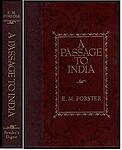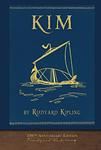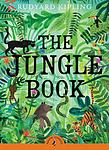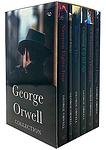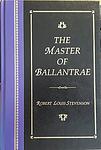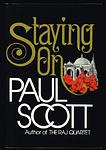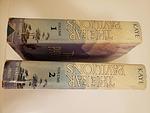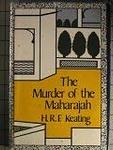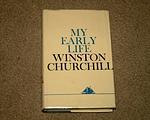The Greatest British "India" Books of All Time
Click to learn how this list is calculated.
This list represents a comprehensive and trusted collection of the greatest books. Developed through a specialized algorithm, it brings together 300 'best of' book lists to form a definitive guide to the world's most acclaimed books. For those interested in how these books are chosen, additional details can be found on the rankings page.
Genres
The "India" category for books encompasses a wide range of literature that explores the history, culture, and society of India. This includes works of fiction, non-fiction, and poetry that delve into the country's rich traditions, religions, and customs, as well as its political and economic landscape. From classic novels like "A Passage to India" to contemporary works that examine modern India, this category offers readers a diverse and fascinating glimpse into one of the world's most complex and captivating nations.
Countries
Date Range
Reading Statistics
Click the button below to see how many of these books you've read!
Download
If you're interested in downloading this list as a CSV file for use in a spreadsheet application, you can easily do so by clicking the button below. Please note that to ensure a manageable file size and faster download, the CSV will include details for only the first 500 books.
Download-
1. Midnight's Children by Salman Rushdie
The novel tells the story of Saleem Sinai, who was born at the exact moment when India gained its independence. As a result, he shares a mystical connection with other children born at the same time, all of whom possess unique, magical abilities. As Saleem grows up, his life mirrors the political and cultural changes happening in his country, from the partition of India and Pakistan, to the Bangladesh War of Independence. The story is a blend of historical fiction and magical realism, exploring themes of identity, fate, and the power of storytelling.
-
2. A Passage to India by E. M. Forster
The novel takes place in British-ruled India, where the cultural divide between the British and the Indians is explored. The story focuses on the experiences of an Indian Muslim, Dr. Aziz, and his interactions with an English woman, Miss Quested, and her elderly friend, Mrs. Moore. After an expedition to the Marabar Caves, Miss Quested accuses Dr. Aziz of assault, leading to a trial that deepens the racial tensions and prejudices between the colonizers and the colonized. The novel is a critique of British imperialism and a study of the cultural and racial misunderstandings and ill-will between the British and the Indian people.
-
3. Kim by Rudyard Kipling
"Kim" is a thrilling adventure set in India during the height of the British empire. The story follows the life of a young Irish orphan, Kimball O'Hara, who grows up on the streets of Lahore. Kim's life takes a dramatic turn when he becomes involved in the 'Great Game', the political conflict between Russia and Britain in Central Asia. Guided by an old Tibetan Lama on a spiritual quest, Kim is recruited by the British secret service and sent on a dangerous mission across the Himalayas. The novel explores themes of identity, imperialism, and East vs. West.
-
4. The Moonstone by Wilkie Collins
"The Moonstone" is a detective novel that revolves around a large, valuable yellow diamond that was stolen from an Indian temple and is now in England. The diamond is bequeathed to a young woman on her eighteenth birthday, but is stolen that same night. The novel follows the investigation of the theft, which is complicated by a series of confusing events and false leads. The resolution involves the unraveling of a tangled web of deception, crime, and colonial guilt.
-
5. The Siege of Krishnapur by J. G. Farrell
Set in India during the period of the British Empire, "The Siege of Krishnapur" is a historical novel that explores the events of the 1857 Sepoy Rebellion. The narrative focuses on the British residents of the fictional town of Krishnapur as they endure a prolonged siege by Indian soldiers. The story delves into the psychological, social, and physical challenges faced by the besieged, and the gradual disintegration of their Victorian-era beliefs and lifestyle. The novel is a commentary on the British Empire, colonialism, and the clash of cultures.
-
6. Satanic Verses by Salman Rushdie
The novel follows two Indian actors who miraculously survive a plane explosion, and as a result, find themselves embodying good and evil. As they navigate their new identities, the story also delves into the life of a prophet and his creation of a new religion in a city of sand. The narrative is a blend of fantasy and reality, exploring themes of identity, religion, and the immigrant experience, while also providing a controversial interpretation of Islamic faith and the life of Prophet Muhammad.
-
7. The Jungle Book by Rudyard Kipling
This classic work is a collection of stories set in the Indian jungle, where a human child, Mowgli, is adopted and raised by a pack of wolves. The book follows Mowgli's adventures and lessons learned from his animal friends and foes, including the wise bear Baloo and the cunning panther Bagheera. The book also includes other tales of animals and humans coexisting in the wild, showcasing themes of survival, morality, and the law of the jungle.
-
8. The Razor's Edge by W. Somerset Maugham
"The Razor's Edge" is a novel that explores the life of a young American, Larry Darrell, who rejects conventional society to search for spiritual enlightenment in the aftermath of World War I. His journey takes him from Illinois to Paris, and eventually to India. The story is narrated by an unnamed author who encounters Larry at various stages of his life, and through his eyes, we see Larry's transformation and the impact it has on the people around him. The novel is a profound exploration of self-discovery, spirituality, and the quest for meaning.
-
9. The Far Pavilions by M. M. Kaye
The novel is a sweeping epic about a British man, brought up as a Hindu during the British Raj. As an adult, he serves in the British army and falls in love with an Indian princess. The novel explores themes of identity, loyalty, and love against the backdrop of the political and social upheaval of late 19th century India. The man and the princess must navigate their complex feelings for each other, their conflicting loyalties to their countries, and the harsh realities of their time.
-
10. Burmese Days by George Orwell
This novel is a scathing critique of British colonial rule in Burma during the 1920s. The protagonist, a disillusioned teak merchant, struggles with the bigotry and racism of his fellow Europeans, and his forbidden love for a Burmese woman. The narrative explores the effects of imperialism on both the oppressors and the oppressed, highlighting the hypocrisy, corruption, and inhumanity that result from such a system.
-
11. The Moor's Last Sigh by Salman Rushdie
This novel follows the life of Moraes Zogoiby, the last in line of a once powerful and influential Indian family. Told from his perspective, Moraes recounts his family's history, starting with his grandparents and moving through to his own life. The narrative is filled with tales of love, betrayal, political unrest, and the supernatural. The protagonist's life is marked by a strange curse that causes him to age twice as fast as a normal human, adding a layer of urgency and tragedy to his story. The book explores themes of cultural identity, family legacy, and the passage of time.
-
12. The Master of Ballantrae: A Winter's Tale by Robert Louis Stevenson
"The Master of Ballantrae: A Winter's Tale" is a captivating adventure story set in Scotland during the Jacobite rebellion of 1745. The narrative revolves around two brothers, James and Henry Durie, who are torn apart by their conflicting loyalties to the English king and the exiled Stuart court. The elder, James, is presumed dead after a lost battle, but returns years later to claim his inheritance, leading to a bitter feud that spans continents and decades. The story is filled with duels, treachery, shipwrecks, and buried treasure, exploring themes of love, hate, revenge, and the destructive power of obsession.
-
13. The Jewel In The Crown by Paul Scott
Set during the final days of the British Raj in India, this novel explores the political and personal repercussions of a young British woman's rape in a fictional Indian city. The incident stirs up racial tensions and leads to a series of events that reveal the deep-seated prejudices and complexities of colonial rule. The story is a complex blend of perspectives, weaving together the lives of its diverse cast of characters, and offering a critical examination of the British colonial experience.
-
14. Man-Eaters of Kumaon by Jim Corbett
The book is a collection of true stories about the author's hunting experiences in India, specifically his encounters with man-eating tigers and leopards in the Kumaon region. The author, a renowned hunter, was often called upon to kill these man-eaters when they became a threat to local villages. The book provides thrilling accounts of his hunts, as well as his observations on the behavior of these animals and his respect for their power and cunning.
-
15. The Sign of Four by Arthur Conan Doyle
This classic detective novel follows the brilliant investigator and his loyal friend as they tackle a complex case involving a stolen treasure, a secret pact among four convicts and two mismatched allies, a wooden-legged man and a dwarf. The story, set in 19th century London, is a thrilling tale of mystery, murder, and a beautiful woman's desperate plea for help, which leads them on a high-speed chase through the city's murky backstreets and bustling river docks. The duo's deductive skills are tested to the limit in this multi-layered narrative that explores themes of justice, betrayal, and the destructive power of greed.
-
16. The Strange Ride of Rudyard Kipling by Angus Wilson
"The Strange Ride of Rudyard Kipling" is a comprehensive biography that explores the life and works of the famous British author and poet, Rudyard Kipling. The book delves into Kipling's complex personality, his controversial political views, his relationships, and his creative process. It also provides a detailed analysis of Kipling's works, placing them in the context of the social and political events of his time.
-
17. Flashman by George MacDonald Fraser
This novel introduces readers to the notorious antihero Harry Flashman, a cowardly British soldier who, through a combination of luck and deceit, rises to prominence in the Victorian military despite his lack of heroism and moral fiber. Through a series of misadventures that span the globe, Flashman becomes entangled in various historical events, from the First Anglo-Afghan War to the Charge of the Light Brigade, always managing to escape by the skin of his teeth. The book, presented as a discovered historical memoir, combines humor, historical detail, and satirical commentary on the British Empire, offering a unique and entertaining perspective on Victorian society and military exploits.
-
18. The Man Who Would Be King by Rudyard Kipling
This novella follows the journey of two British adventurers in British India who become kings of a remote part of Afghanistan. After persuading local tribes to follow them through a mix of bravado and technological superiority, their rule is initially successful. However, their ambition leads to overreach when one of them decides to take a wife, breaking a local religious taboo. Their once-loyal subjects turn against them, leading to a dramatic and tragic conclusion that serves as a cautionary tale about the dangers of imperialism and the limits of hubris.
-
19. Staying On by Paul Scott
Staying On focuses on a British couple, Tusker and Lucy Smalley, who decide to stay in India after the end of British rule, rather than return to England. The book explores their struggles and challenges as they try to adapt to a changing India, dealing with the loss of their privileged colonial status, their strained marriage, and their increasing isolation. The narrative delves into themes of ageing, cultural clash, and the end of an era, offering a poignant and complex depiction of post-colonial India.
-
20. Someone Like You by Roald Dahl
"Someone Like You" is a collection of dark and twisted short stories that explore the depths of human nature. From tales of revenge and deceit to stories of unexpected twists and turns, this book delves into the sinister side of humanity, leaving readers questioning their own morals and beliefs. With Dahl's signature wit and mastery of storytelling, each narrative is a captivating and unsettling journey into the complexities of the human psyche.
-
21. The Far Pavillions by Mary Margaret Kaye
This epic novel is a sweeping tale of love and adventure set against the backdrop of the British Raj in India. It follows the life of Ashton Pelham-Martyn, an Englishman brought up as a Hindu, who navigates the complexities of his dual identity amidst the political and military turmoil of the time. His profound connection with India and its people, especially his deep love for the beautiful and spirited Princess Anjuli, drives the narrative. The story weaves through the grandeur of the Indian landscape, the brutal realities of colonial rule, and the personal struggles of its characters, exploring themes of loyalty, identity, and the clash of cultures.
-
22. The Murder Of The Maharajah by H. R. F. Keating
Set against the backdrop of British India, the book revolves around the investigation of the death of a wealthy and despotic Indian prince. The Maharajah, known for his opulent lifestyle and cruel treatment of subjects, is found dead under mysterious circumstances during a hunting party at his palace. The task of unraveling the truth falls to an experienced British police officer, who must navigate through a web of deceit, colonial tensions, and a long list of suspects with motives for murder. As the investigation unfolds, it exposes the intricate complexities of power, privilege, and the dark underbelly of the Raj.
-
23. An Area Of Darkness by V. S. Naipaul
The book is a travelogue that delves into the author's journey through India, a country that is both his ancestral homeland and a place of discovery for him. Through a series of vivid observations and encounters, the narrative explores the complexities, contradictions, and profound cultural richness of India. The author grapples with the legacies of colonialism, the challenges of modernity, and his own personal search for identity. The text is characterized by its introspective and often critical perspective, offering a portrait of a nation at a crossroads and a writer's quest to understand his own heritage.
-
24. Slowly Down The Ganges by Eric Newby
This travelogue recounts the author's adventurous journey down the Ganges, one of the great rivers of the Indian subcontinent. With humor and keen observation, the narrative captures the diverse landscapes and vibrant cultures encountered along the riverbanks. Through a series of mishaps, challenges, and encounters with local inhabitants, the author paints a vivid picture of life in India, reflecting on its history, religion, and the profound significance of the river to the people who live along its course. The book is as much a personal quest as it is an exploration of a place and its people, offering insights into the complexities of a rapidly changing country while navigating the waters of one of its most sacred rivers.
-
25. My Early Life by Winston Churchill
This memoir provides a captivating look into the early years of a man who would become one of the most influential figures in British history. The book covers his childhood, his experiences at various schools, his time in India and his early political career. It also provides an insight into his experiences as a war correspondent in the Boer War. The narrative is filled with personal anecdotes, reflections, and a good dose of humor, offering a unique perspective into the formative years of this renowned statesman.
Reading Statistics
Click the button below to see how many of these books you've read!
Download
If you're interested in downloading this list as a CSV file for use in a spreadsheet application, you can easily do so by clicking the button below. Please note that to ensure a manageable file size and faster download, the CSV will include details for only the first 500 books.
Download
